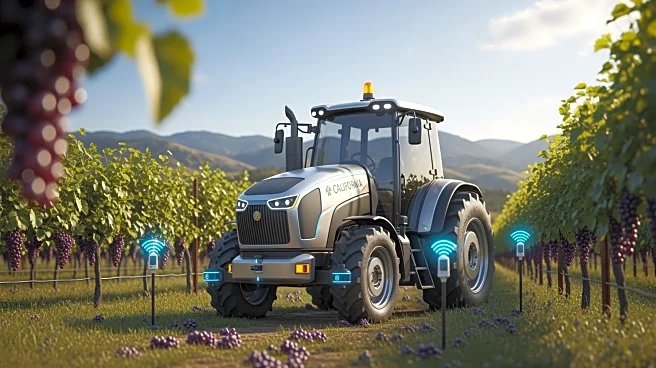What's Happening?
California is pioneering the integration of autonomous technology in agriculture, aiming to set global standards for safety and scalability. The state's comprehensive agriculture and labor safety regulations
are being adapted to accommodate autonomous systems, such as AI-powered tractors, which promise to enhance safety and efficiency in farming. This initiative involves collaboration between technology innovators, equipment manufacturers, growers, and regulators, ensuring that autonomous vehicles operate legally and safely. The effort is driven by the need to address labor challenges, tight margins, and sustainability pressures in the agricultural sector.
Why It's Important?
The adoption of autonomous technology in agriculture is crucial for enhancing safety and operational efficiency. By removing operators from potentially hazardous situations, AI-powered systems can significantly reduce accidents and improve worker safety. California's leadership in this area not only benefits local growers but also sets a precedent for other states and countries to follow. The successful integration of technology and regulation can help maintain the competitiveness of the agricultural sector, which is vital for the state's economy and its role in global food production.
What's Next?
The ongoing collaboration between regulators and industry stakeholders is expected to continue, with field trials and real-world safety data playing a key role in modernizing safety regulations. As California leads the way, other states may look to adopt similar standards, potentially influencing national and international policies. The focus will remain on ensuring that technological advancements are matched by regulatory updates that protect workers while enabling innovation.
Beyond the Headlines
California's approach highlights the importance of balancing innovation with safety in the agricultural sector. The state's efforts could lead to long-term shifts in how technology is integrated into farming practices, potentially influencing global standards. Ethical considerations, such as the impact on labor markets and the environment, will also play a role in shaping the future of agricultural autonomy.









